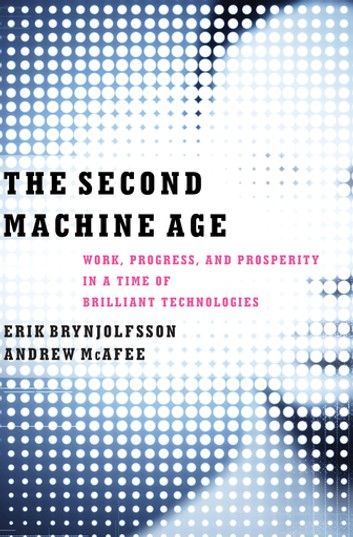| FindBook |
|
有 13 項符合
andrew mcafee的圖書,這是第 2 頁 |
 |
$ 447 電子書 | The Second Machine Age: Work, Progress, and Prosperity in a Time of Brilliant Technologies
作者:Erik Brynjolfsson,Andrew McAfee 出版社:W. W. Norton & Company 出版日期:2014-01-20 語言:英文  看圖書介紹 看圖書介紹
|
|
|
A New York Times Bestseller. A “fascinating” (Thomas L. Friedman, New York Times) look at how digital technology is transforming our work and our lives.
In recent years, Google’s autonomous cars have logged thousands of miles on American highways and IBM’s Watson trounced the best human Jeopardy! players. Digital technologies—with hardware, software, and networks at their core—will in the near future diagnose diseases more accurately than doctors can, apply enormous data sets to transform retailing, and accomplish many tasks once considered uniquely human.
In The Second Machine Age MIT’s Erik Brynjolfsson and Andrew McAfee—two thinkers at the forefront of their field—reveal the forces driving the reinvention of our lives and our economy. As the full impact of digital technologies is felt, we will realize immense bounty in the form of dazzling personal technology, advanced infrastructure, and near-boundless access to the cultural items that enrich our lives.
Amid this bounty will also be wrenching change. Professions of all kinds—from lawyers to truck drivers—will be forever upended. Companies will be forced to transform or die. Recent economic indicators reflect this shift: fewer people are working, and wages are falling even as productivity and profits soar.
Drawing on years of research and up-to-the-minute trends, Brynjolfsson and McAfee identify the best strategies for survival and offer a new path to prosperity. These include revamping education so that it prepares people for the next economy instead of the last one, designing new collaborations that pair brute processing power with human ingenuity, and embracing policies that make sense in a radically transformed landscape.
A fundamentally optimistic book, The Second Machine Age alters how we think about issues of technological, societal, and economic progress.
The Old Building
Usborne English Readers Level 2 (共13冊)
Usborne English Readers Level 3 (共13冊)
Pip and Posy 英國版平裝本套書(共8本)*附音檔QRcode*
THE GREAT DETECTIVE SHERLOCK HOLMES 11: The Lethal Crystals
Jemima Small Versus the Universe
Usborne Illustrated Atlas of Britain and Ireland
Young Reading Series 3: The Invisible Man
Travel Puzzles (Never Get Bored Cards)
|





![塔木德:猶太人的致富聖經[修訂版]:1000多年來帶領猶太人快速累積財富的神祕經典 塔木德:猶太人的致富聖經[修訂版]:1000多年來帶領猶太人快速累積財富的神祕經典](https://media.taaze.tw/showLargeImage.html?sc=11100697818)





